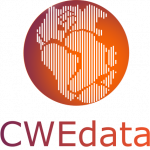CWEdata Project
Executive Summary
DATA-MUNDO is the product of the extension project developed by the Federal University of Santa Catarina entitled “Data-Driven Development: a world-historical view of the economy and the international system” and aims to produce and disseminate strategic information and knowledge that can partially supply the capacity deficits of the governance structure of the Santa Catarina public sector regarding the knowledge of the international reality necessary for the formulation of long-term development strategies. To this end, the project proposes to:
- structure a relational database with different types of statistics that can be used as empirical evidence of a world-historical view of the economy and the international system;
- develop information visualization dashboards from the creation of indicators and advanced statistical analyses (e.g. Cluster Analysis, Principal Component Analysis, and Network Analysis);
- produce monthly thematic bulletins in accessible language with the intention of mobilizing the public sector for the importance of long-term development strategies;
- train students and public agents for decision-making in facing development dilemmas from a world-historical perspective based on evidence.
Keywords: Panel Data; Data Science; Economic Development; International Economic Relations; Inequality; Center-Periphery Relationship.
Target Audience
Students and public managers who work in the areas of regional development and/or international affairs of the state and municipal secretariats of Santa Catarina.
Context
“Think globally, act locally” may have been the most verbalized and defended slogan by public managers concerned with promoting regional development in Santa Catarina in the last three decades. In a recent study, professors from the Department of Economics and International Relations of UFSC (CARIO et al., 2019), highlighted that the productive structure of the Santa Catarina economy faces a structural change process: traditional sectors linked to agriculture and forestry are giving way to medium and high-tech industries and to the knowledge-intensive services sector. This transformation, which differs from the general deindustrialization movement of the Brazilian economy and approaches the successful experiences of developed countries, has not yet been completed and points to the deepening of regional imbalance expressed in the phenomenon of “coastalization”. As a local development strategy, the Santa Catarina Development Plan 2030 recommends promoting the knowledge economy for regions still supported by traditional sectors. In addition, the study suggests that Santa Catarina’s economic growth strategy should “decouple” from Brazil and integrate into the world through the internationalization of its production either through the attraction of multinational companies or through external investments of Santa Catarina companies (GOVERNO DE SANTA CATARINA, 2018);
A regional economy integrated into the world is also an economy more exposed to the global competitive dynamics and, therefore, subject to international political and economic movements. How to move within this scenario in a way that the historical achievements of elevating Santa Catarina’s living conditions are not reversed by failed development strategies? Maximizing the success possibilities of SC 2030 requires a type of public policy governance capacity supported by strategic information of a world-historical character that, often in their daily routine, the public manager does not have time to systematize. The present extension project aims to fill this gap through the production and dissemination of strategic information and knowledge from the integrated use of information technologies, statistical analyses, as well as economic theories and international relations, thus contributing to the data-driven development movement (WORLD BANK, 2018).
Justification
Since the 1994 State reform, the Brazilian state structure has undergone successive institutional modernizations with the objective of containing clientelism and conferring greater rationality to public choice (BRESSER-PEREIRA; SPINK, 1998). Nevertheless, the modernization of the governance structure of states and municipalities is made more difficult due to growing social demands, progressive public indebtedness, and the deficit of capacities in public management. The degree of indebtedness of states limits the availability of financial resources for the promotion of active long-term development policies. The absence of constitutional autonomy to execute monetary, exchange, and external policies favorable to world economic integration reduces the degrees of freedom of the Santa Catarina economy in relation to the Brazilian economy. The capacity deficits in governance structures limit the identification of development opportunities. In this sense, the extension project is justified insofar as it intends to partially supply the capacity deficit by providing access to structured information and specialized knowledge in accessible language to the non-specialist public.
Objectives
General Objective
Produce and disseminate strategic information and knowledge that can partially supply the capacity deficits of the governance structure of the Santa Catarina public sector regarding the knowledge of the international reality necessary for the formulation of long-term development strategies.
Specific Objectives
- Structure a relational database with different types of statistics that can be used as empirical evidence of a world-historical view of the economy and the international system;
- Develop information visualization dashboards from the creation of indicators and advanced statistical analyses (e.g. Cluster Analysis, Principal Component Analysis, and Network Analysis);
- Produce monthly thematic bulletins in accessible language with the intention of mobilizing the public sector for the importance of long-term development strategies;
- Train students and public agents for decision-making in facing development dilemmas from a world-historical perspective based on evidence.
References
BRESSER-PEREIRA, Luiz Carlos; SPINK, Peter. State Reform and Managerial Public Administration. Rio de Janeiro, RJ: FGV Editora, 1998.
CARIO, Silvio Antonio Ferraz; NICOLAU, José Antono.; CARVALHO JR., Luiz Carlos De; BOPPRÉ, Norton Flores (ORG.). Economic and Social Characteristics of Santa Catarina at the Threshold of the 21st Century. Criciúma: UNESC, 2019. Available at: http://repositorio.unesc.net/handle/1/7663.
CONNOLLY, Thomas; BEGG, Carolyn. Database systems: a practical approach to design, implementation, and management. 6th ed. Essex: Pearson, 2015.
GOVERNO DE SANTA CATARINA. Santa Catarina Development Plan 2030. Florianópolis. Available at: http://www.spg.sc.gov.br/visualizar-biblioteca/acoes/plano-catarinense-de-desenvolvimento/1162-plano-sc-2030-versao-final/file.
HOPKINS, Terence K.; WALLERSTEIN, Immanuel. Patterns of development of the modern world-system. Review (Fernand Braudel Center), p. 111-145, 1977.
WORLD BANK. Information and Communications for Development 2018: Data-Driven Development. [s.l.] : The World Bank, 2018. DOI: 10.1596/978-1-4648-1325-2. Available at: http://elibrary.worldbank.org/doi/book/10.1596/978-1-4648-1325-2. Accessed on: June 15, 2019.






